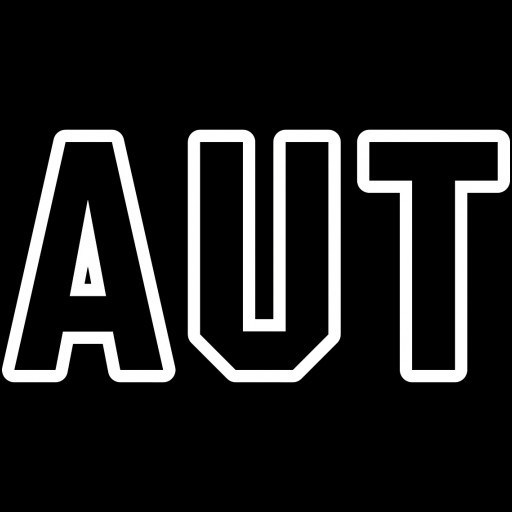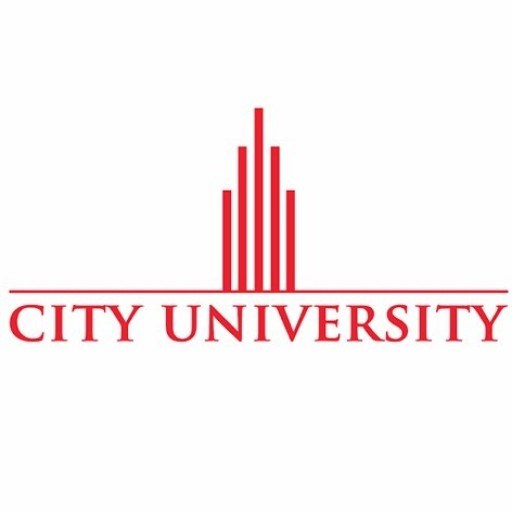Photos of university / #uniofeastanglia
Description
If you are interested in both economics and politics, the BSc Politics and Economics will be relevant and attractive to you. As with the BSc Economics degree, this programme gives you a thorough and high-level training in economics, but it also emphasises political science. Many real social problems require both economic and political analysis, and mastering both enables you to present more comprehensive and satisfactory predictions and recommendations. Such skills are in heavy demand by employers.
92% of economics students are satisfied with the BSc Politics and Economics, overall (KIS 2012).
Our BSc Politics and Economics programme has a solid economics and politics core. Two thirds of the workload for years 1 and 2 will be taken from the School of Economics so as to provide economic conceptual and practical tools, while in year 3 the emphasis will be on political applications, with two thirds of the workload to be drawn from the School of Political, Social and International Studies.
Year 1
The economic foundation is laid through the year-long module Introductory Economics. This module covers key concepts in both macroeconomics (understanding consumption, savings, inflation, interest rates, monetary and fiscal policy, and the global economy) and microeconomics (individuals and households consumption and saving decisions, firms output decisions, analysis of markets, externalities, asymmetric information, and strategic interaction). You will be taught economic modelling techniques and statistical techniques in the module Introductory Mathematics and Statistics for Economists. The remainder of your first year will be made up from modules that you can choose from the School of Political, Social and International Studies: Social and Political Theory; Introduction to Contemporary Politics.
Year 2
You will strengthen your understanding of the macro and micro economy, by deepening your learning of some issues encountered in the first year in greater depth and by studying new areas in the module Intermediate Economics. In the compulsory module Applied Economic Analysis you will continue to build your statistical skills, while simultaneously applying the techniques you will acquire in a module specifically designed to enhance the employability of our economics graduates. Your study of economics will be complemented by a choice of modules from the School of Political, Social and International Studies.
Year 3
You will choose one year 3 module in the School of Economics. The remainder of your third year allows you to choose from a broad curriculum of political disciplines, to which you will be able to apply insights from your solid economic foundations. Optional modules in the School of Economics are: Advanced Economics; Government Welfare and Policy. Optional third-year politics modules in the School of Political, Social and International Studies.
Detailed Course Facts
Application deadline You are advised to apply as early as possible Tuition fee- EUR 10550 Year (EEA)
- EUR 14700 Year (Non-EEA)
Fees (home/EU) £9,000; Fees (international) £12,550
Start date September 2015 Credits (ECTS) 180 ECTSDuration full-time 36 months Languages Take an IELTS test
- English
Course Content
Year 1
If you are planning to start your 1st year in September 2013 (or later), the following course profile will apply to you. (120 credits in total) (SEM1: Semester 1; SEM2: Semester 2)
INTRODUCTORY ECONOMICS, 40 credit year long module
PSI-1A01 SOCIAL AND POLITICAL THEORY, 20 credit module, SEM1
PSI-1A02 INTRODUCTION TO CONTEMPORARY POLITICS , 20 credit module, SEM2
INTRODUCTORY MATHEMATICS AND STATISTICS FOR ECONOMISTS, 40 credit year long module (if you do not have A-level Maths or equivalent) or
MATHEMATICS AND STATISTICS FOR ECONOMISTS, 40 credit year long module (if you have A-level Maths or equivalent)
Year 2
We present two course profiles for Year 2 below.
Course Profile A applies to any student beginning Year 1 in September 2013 (or later).
Course Profile B applies to any student who is a direct entrant to Year 2 in September 2013, or who is a current student.
Course Profile A (Entry to Year 1 in 2013-14)
Compulsory Modules (100 credits) (SEM1: Semester 1; SEM2: Semester 2)
INTERMEDIATE ECONOMICS, 40 credit year long module
APPLIED ECONOMIC ANALYSIS, 40 credit year long module
PSI-2A48 BUILDING BLOCKS OF POLITICAL Science, 20 credit module, SEM 2
Options
PSI-2*- Any module beginning PSI-2
Course Profile B (Direct Entry to Year 2 in 2013-14, or Current Students)
Compulsory Modules (80 credits) (SEM1: Semester 1; SEM2: Semester 2)
Students should not exceed 80 coursework credits in years 2 and 3 combined.
ECO-2A05 PRINCIPLES OF MACROECONOMICS, 20 credit module, SEM1
ECO-2A06 METHODS OF ECONOMIC RESEARCH, 20 credit module, SEM2
ECO-2A07 PRINCIPLES OF MICROECONOMICS, 20 credit module, SEM1
PSI-2A48 BUILDING BLOCKS OF POLITICAL Science, 20 credit module, SEM 2
Options Range A Students will select 40 credits from the following modules:
PSI-2* Any module beginning PSI-2
Year 3
We present two course profiles for Year 3 below.
Course Profile A applies to any student beginning Year 1 in September 2013 (or later).
Course Profile B applies to any student who is a direct entrant to Year 2 in September 2013, or who is a current student.
Course Profile A (Entry to Year 1 in 2013-14)
Students will select 40 credits from the following ECO modules
GOVERNMENT, WELFARE AND POLICY, 40 credit year long module
ADVANCED ECONOMICS, 40 credit year long module
Options
Students will select 80 credits from PSI
PSI-3*- Any module beginning PSI-3
Course Profile B (Direct Entry to Year 2 in 2013-14, or Current Students)
Compulsory Modules (20 credits) (SEM1: Semester 1; SEM2: Semester 2)
ECO-3B08 TOPICS IN ECONOMIC ANALYSIS, 20 credit module, SEM2
Options Range A
Students will select 20 credits from the following modules:
PSI-3* Any module beginning PSI-3
Options Range B
Students will select 40 credits from the following modules:
ECO-2* Any module beginning ECO-2
ECO-3* Any module beginning ECO-3
PSI-2* Any module beginning PSI-2
PSI-3* Any module beginning PSI-3
Free Choice Students are required to select 40 credits, which may be from any Option Range referred to above or from the course catalogue with the approval of their School.
English Language Requirements
IELTS band : 6 TOEFL iBT® test : 78
To study at this university, you have to speak English. We advice you to
take an IELTS test. More About IELTSRequirements
- Qualification:
- A Level:
- International Baccalaureate:
- Scottish Advanced Highers:
- Irish Leaving Certificate:
- Access Course:
- HND:
- European Baccalaureate:
Entry Requirement
Candidates will be expected to have 3 A levels (see below for typical offer). Please note: We do not accept A level General Studies as one of these.
For students without A level Mathematics, we offer a modified version of the "Introductory Mathematics for Economists" module in the first semester of Year 1. There is a special non A level teaching track enabling students to start from a very basic level and learn the complete range of mathematical skills that are required later in the degree.
Candidates with equivalent qualifications to the A level requirement are encouraged to apply (eg International Baccalaureate; Access to Higher Education certificate). International candidates are also actively encouraged to access the University's International section of our website.
Students should also have 5 GCSEs grade C or above including English and Mathematics (grade B).
Students for whom English is a Foreign language
We welcome applications from students from all academic backgrounds. We require evidence of proficiency in English (including writing, speaking, listening and reading). Recognised English Language qualifications include:
- IELTS: 6. overall (minimum 5.5 in any component)
- TOEFL: Internet-based score of 78 overall (minimum 20 in Speaking component, 17 in Writing and Listening components and 18 in Reading components.
- PTE: 55 overall (minimum 51 in any component).
If you do not meet the University's entry requirements, our INTO Language Learning Centre offers a range of university preparation courses to help you develop the high level of academic and English skills necessary for successful undergraduate study.
Interviews
Sometimes applicants are requested to attend an interview prior to being offered a place on the course. These are normally quite informal and provide the interviewer with the opportunity to find out more about your current studies, your reasons for choosing the course and your personal interests and the extra-curricular activities that you are involved in.
Special Entry Requirements
A level General Studies is not accepted.
Intakes
The course begins in September each year.
Approximate annual intake of students: 10.
GCSE Offer
Students should also have 5 GCSEs grade C or above including English and Mathematics (grade B).
Assessment
Key factors used to assess an application include:
- Past and future achievement in examinations
- Academic interest in the subject
- Personal interests and extra-curricular activities
- The reference
All applications are considered on their own individual merits.
Work Experience
No work experience is required.
Want to improve your English level for admission?
Prepare for the program requirements with English Online by the British Council.
- ✔️ Flexible study schedule
- ✔️ Experienced teachers
- ✔️ Certificate upon completion
📘 Recommended for students with an IELTS level of 6.0 or below.
Related Scholarships*
- Academic Excellence Scholarship
"The Academic Excellence Scholarship can provide up to a 50 % reduction in tuition per semester. These scholarships will be renewed if the student maintains superior academic performance during each semester of their 3-year Bachelor programme. The scholarship will be directly applied to the student’s tuition fees."
- Access Bursary
Bursary for UK students all subjects where the variable tuition fee rate is payable.
- Alumni Bursary
Alumni Bursary for UK Undergraduate students
* The scholarships shown on this page are suggestions first and foremost. They could be offered by other organisations than University of East Anglia.











